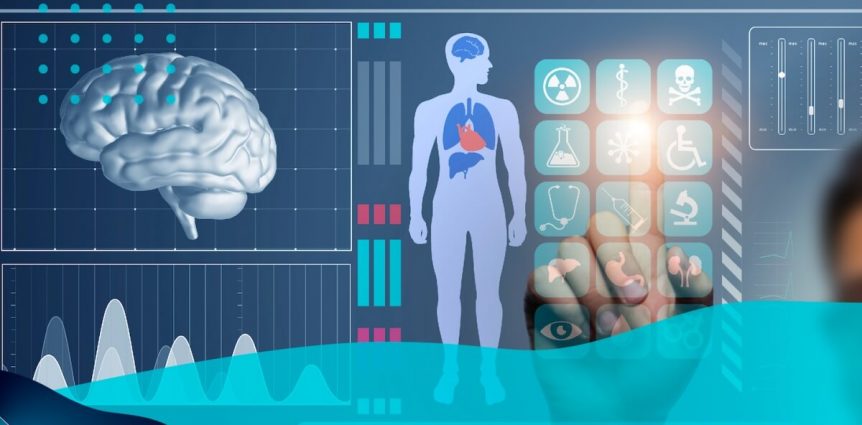- Big Data has given birth to various new opportunities and manage businesses efficiently.
- One such industry appreciating the perks of using Big Data is the Healthcare industry.
- The usage of Big Data proves to be life-saving and even helps in preventing epidemics.
- Doctors can capture the warning signs of an arising illness as early as possible with data.
- “Prevention is better than cure”- this has been made possible with the use of healthcare data analytics.
- Research has shown that Big Data in Healthcare will reach a CAGR of 22.07% by 2022.
- Data combined with predictive analytics can do wonders by predicting the possible outcomes be it positive or negative.
- It keeps the doctors and healthcare professional stay one step ahead in case of Intensive or Emergency Care and aids in quick reaction time.
- The data driven insights help in making informed decisions and allow caring for more people than the usual.
- Big Data also helps in assessing the methodology of treatment used and suggests newer better ways for quick healing.
- It is a boon for those who keep track of the medical supplies.
- With Big Data in the picture, better healthcare system and better treatment at an affordable cost are made plausible.
Here is how deploying Big Data will be a rewarding journey in the Healthcare Industry:
1. Maintenance of Health Records:
- The Electronic Health Records of every patient is crucial throughout their lifetime.
- In case of emergency, the retrieval of the records as fast as possible will give the doctors the required information.
- Including their past treatment, medications, therapy and test reports.
- These data are modifiable by doctors by updating the recent status of patients but are stored under high security.
2. Instantaneous Alert System:
- One of the main sources of information for Big Data is the Smart Wearable like Fitbit, Apple Smart Watch and other medically approved gadgets.
- These are directly connected with the cloud and live monitoring occurs.
- When a patient with blood pressure has his/her pressure going too high or low, the system immediately alerts the doctors for timely treatment.
- Similarly, people are given their own responsibility for monitoring their health with these devices.
- For example, Patterns of sleep and heart rate can be tracked easily and identifies the risk factors making them take steps for a healthy lifestyle.
3. Better Utilization of Time Slots:
- Many hospitals prime concern is the scheduling of appointments for out-patients.
- With the Big Data to rescue, hospitals could identify the patterns of the arrival of the patients.
- To reduce the waiting time and optimize the process, predictive analytics is used.
- From the results, an improved scheduling process can be employed, thus ensuring proper staff utilization too!
- Besides, hospitals can even identify individuals who might not show up for the appointment and can fill in those slots with patients in need.
4. Lowering The Re-Admission Rate:
- Re-admission rate is an important KPI for your healthcare service.
- The lower, the better!
- Big Data triggers warning when a patient has high risk factors of re-admission and deploys intensive care for them to decrease the same.
- Big Data not only helps in speedy & apt treatments but also helps in preventing speedy returns of the patients to the hospital.
5. Protector of Mental Health:
- Big Data not only helps in the detection of risk in physical health but also in mental health.
- With the trove of data available, it helps the doctors to identify individuals with severe mental illness, which may even lead to suicide.
- The data collected through questionnaires and reports are analysed using a predictive algorithm with which attempt of suicide can be prevented among the individuals.
6. Research and Development of Medicines:
- Big Data has opened a new way for drug discovery and evidence-based medicine techniques.
- By digging in the massive database available, researchers are able to find various combinations, effectiveness and adverse effects of medicines.
- This aids in speeding up of new medication development than the conventional way.
- Also, some systems can predict a patient’s response to medication by matching them with similar genetic info of earlier patients, giving the likelihood of success.
7. Fraud Detection:
- Insurance and Healthcare are conjoint services, where cross-reference of information is used widely.
- Companies that use Big Data Analytics reduce false and fraudulent claims happening in healthcare insurance.
- Big data keeps a record of patients’ personal information and claim history, preventing insurance fraud.
Healthcare professionals can make more accurate diagnosis on-time and save thousands of lives. Big Data is highly lucrative in the field of healthcare offering germane solutions for countless complex concerns.
Serve and Save Lives Better with Big Data.

